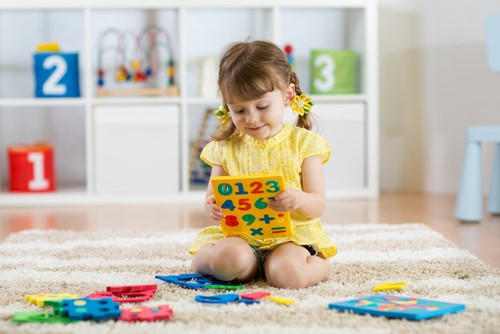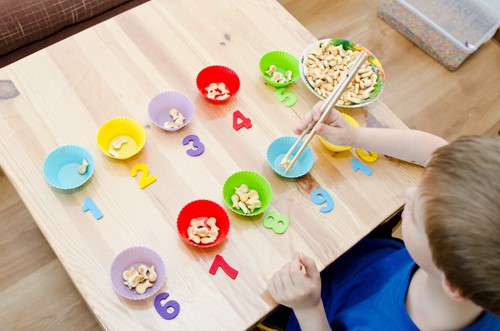Learning to Love Maths
Article by Junaid Mubeen, expert advisor at Teach Your Monster Number Skills

3 Easy ways to nurture numeracy skills by encouraging children to interact with numbers in everyday life
Rishi Sunak may be planning on making children continue to study maths until they are 18, but I believe mastering numeracy at an early age has a far greater, long-term impact. I am not alone, either: according to research commissioned by non-profit Teach Your Monster, 67 per cent of parents believe we should be focusing on helping younger learners understand maths.
Yet despite 72 per cent of parents identifying maths as the most important subject for their child, more than a fifth say they are not confident with numbers and more than two fifths struggle to help with their child’s maths homework. When it comes to our children’s maths education, the numbers just aren’t adding up.
The good news is that there are countless ways for parents to embed numeracy into your children’s everyday lives in ways that remove the stress and anxiety that many associate with maths. Numbers are not to be feared - they are to be played with – and a good mix of resources and activities will set your child up for long-term success.
Here are my three top tips for parents to help their budding young mathematicians:
1. Introduce your child to numbers across a wide range of situations
This is easier than you might imagine because numbers are literally everywhere! Count the trees as you pass them by or look out for your child’s favourite number on buses and car license plates. At the library, seek out mathematically-themed books – many familiar stories emphasise certain numbers (where would Goldilocks be without a bit of three-ness?).
2. Make learning physical with maths resources
When children are able to interact with numbers, to see them displayed visually, to hold objects in their hands, it all amounts to a strong foundation that they can fall back on for years to come. Number blocks and large counters support numeracy in a tactile way that engages all your child’s senses.
3. Play mathematical games
Maths is all about exploration, discovery, and a whole lot of fun. Board games are a brilliant way to get your child thinking about numbers in creative ways (we’re fans of Junior Monopoly and Tiny Polka Dot). There are also digital games like Teach Your Monster Number Skills (free online), which is set in a maths theme park, and has multiple activities that bring each number to life through puzzles and activities. It is a great way of blending learning with play and a huge hit in our house. Aimed at children aged 3+. There are 8 mini maths games, each with 10 levels. It’s plentiful with monster characters, and effective at boosting kids’ confidence with numbers and making maths fun.

There will be time aplenty for times tables and all the other demands of the curriculum, but the most important thing for me, as a parent, is to foster a love of learning from a young age. This is an approach all parents can get behind, regardless of your past experiences with maths.
Junaid Mubeen is a mathematician turned educator, Countdown series winner, and expert advisor to non-profit children’s online game, Teach Your Monster Number Skills.